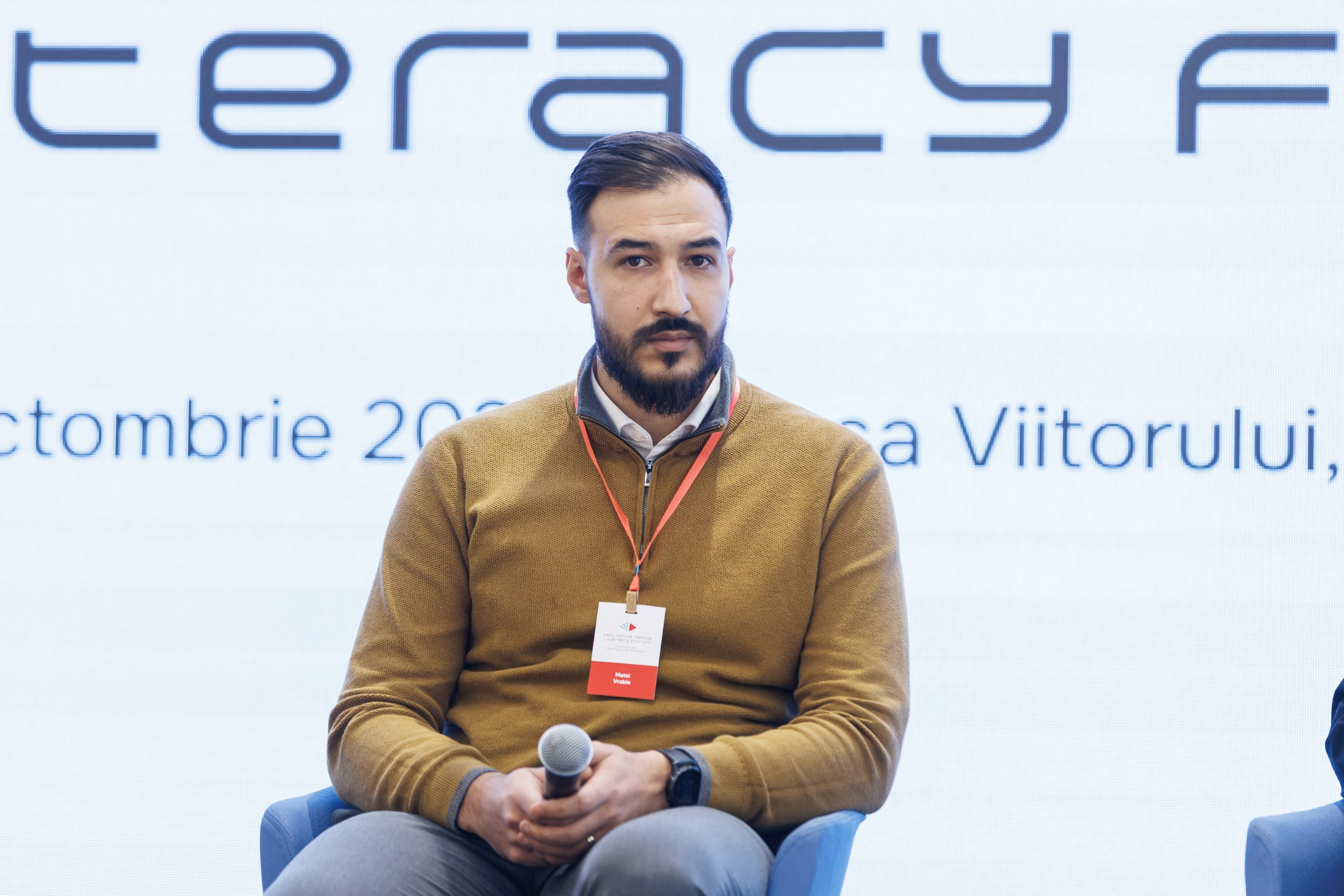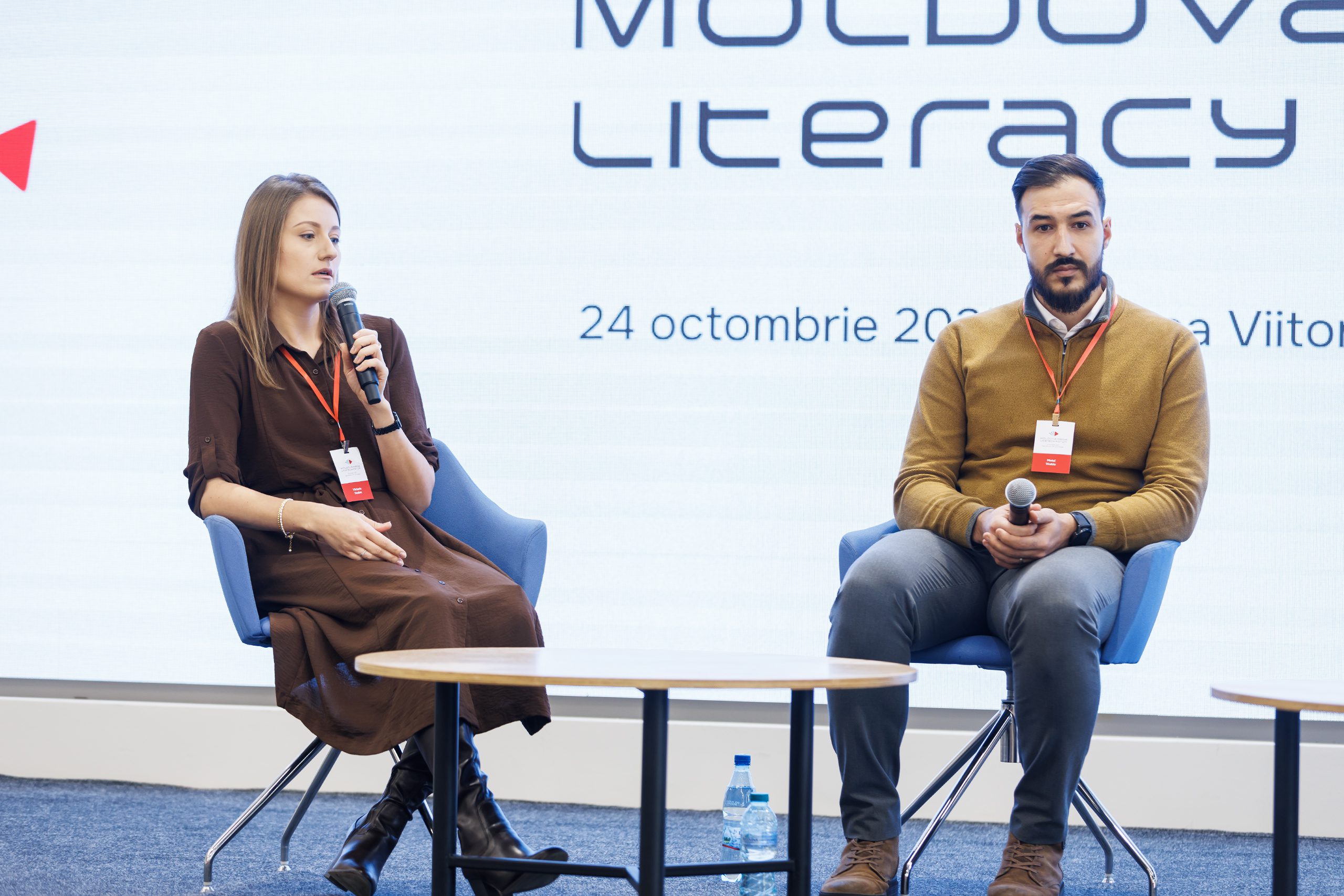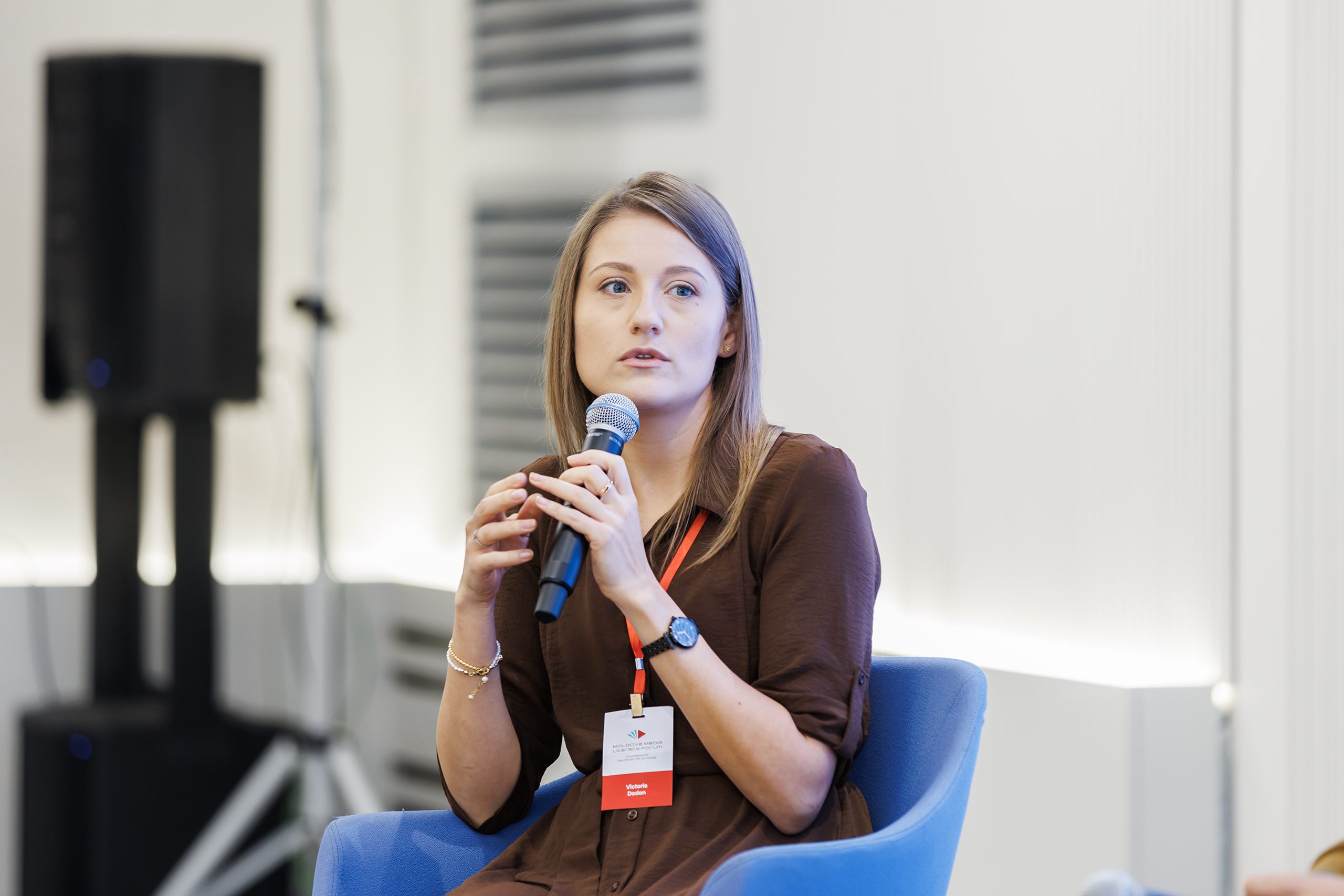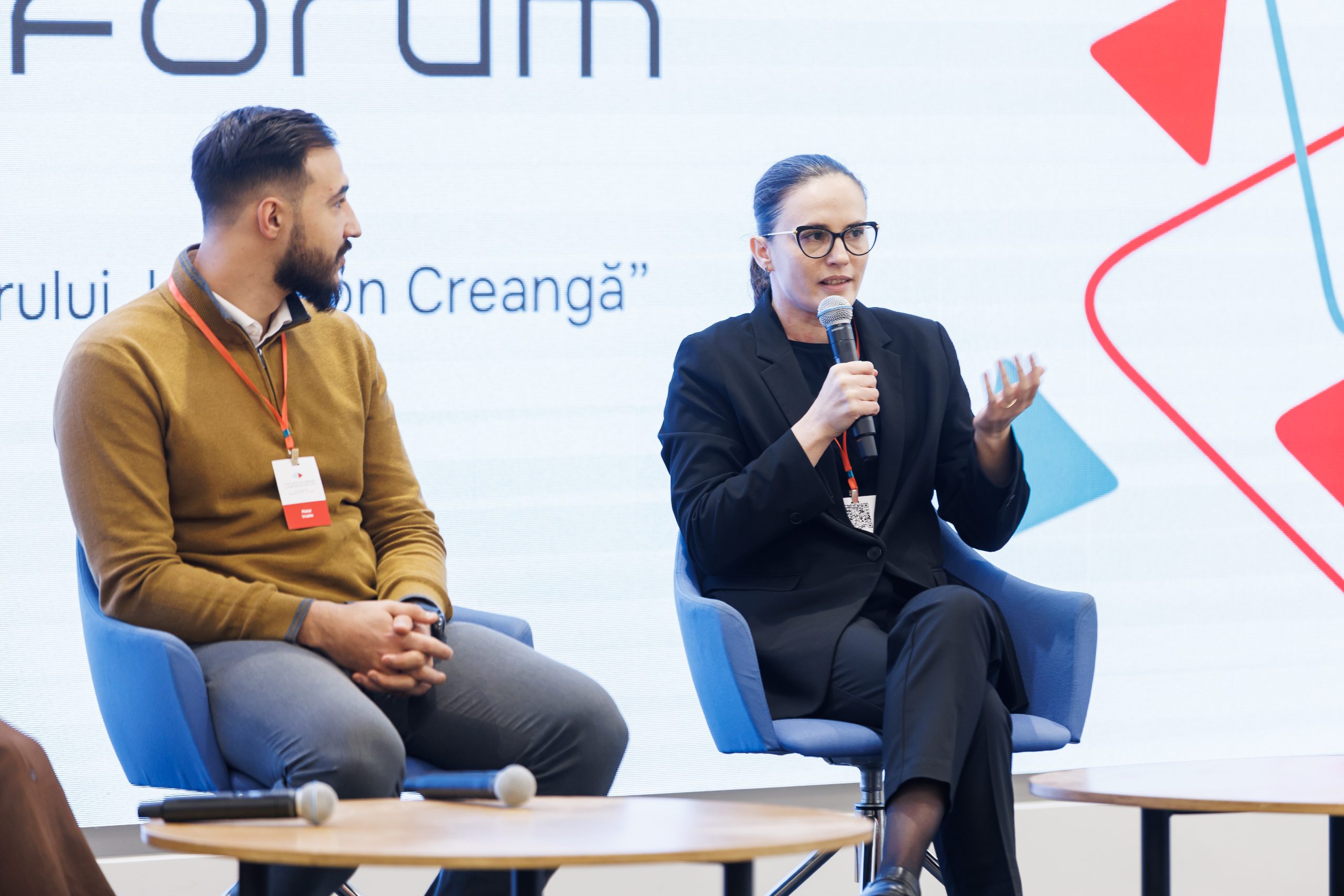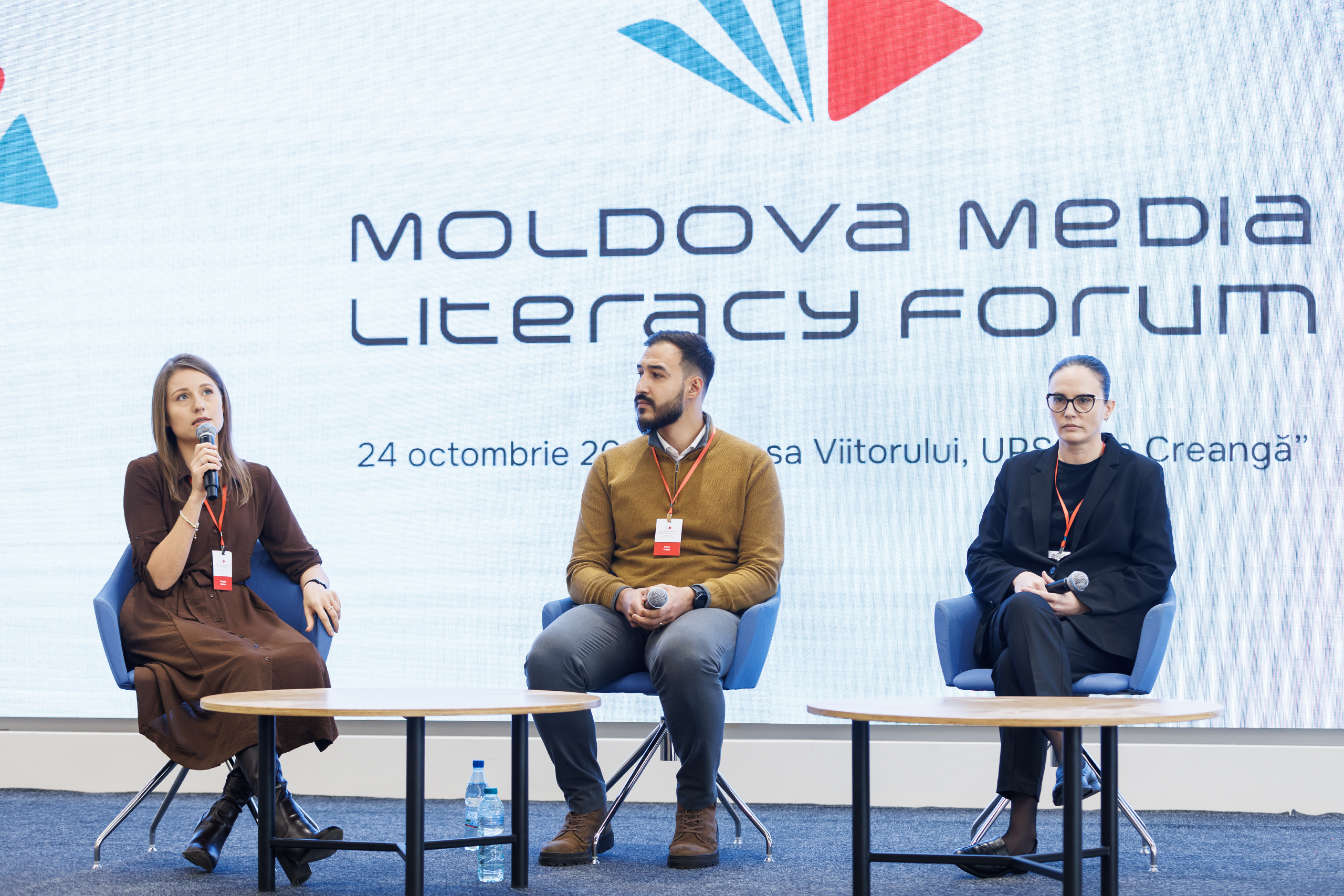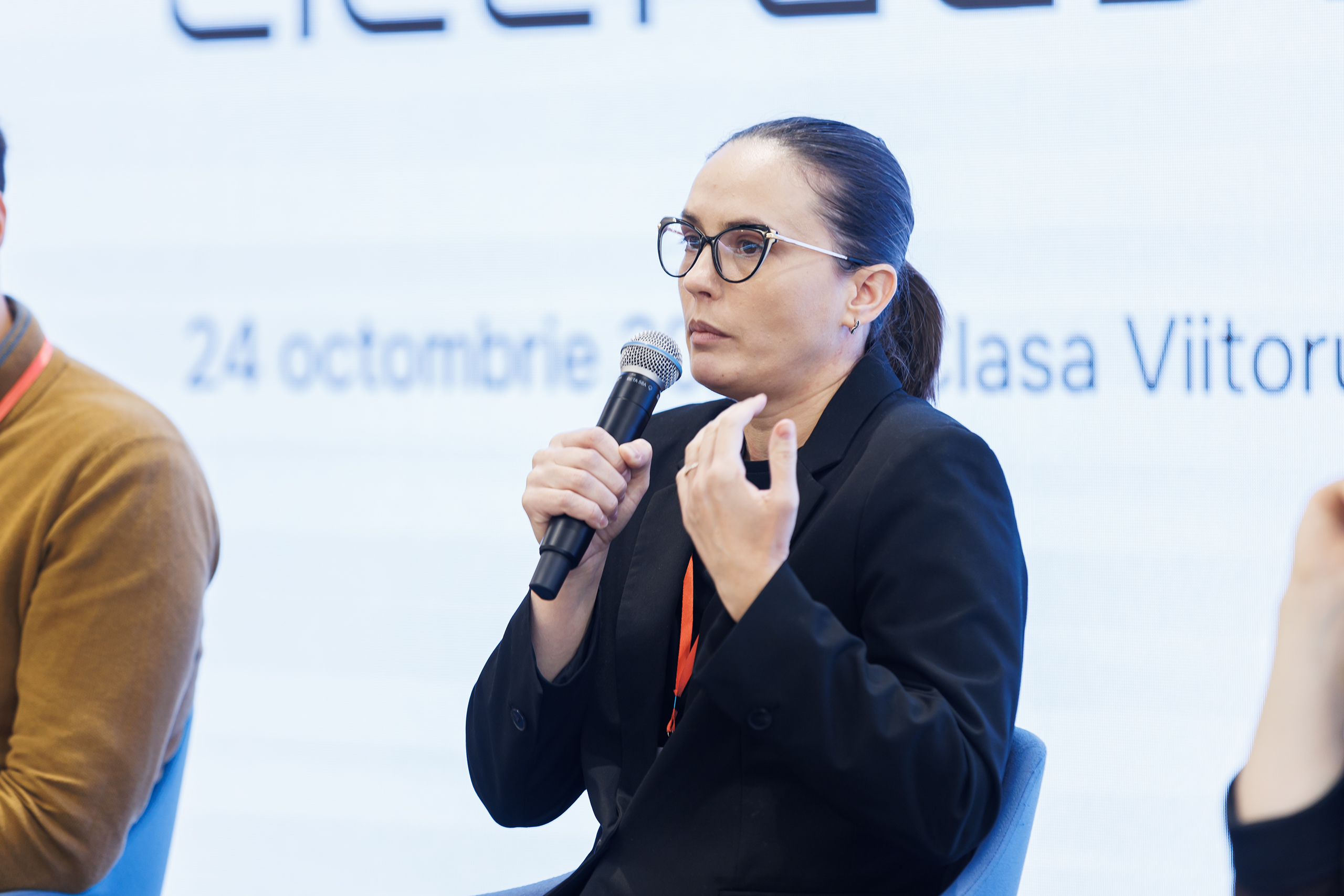Media education and fact-checking – a shared responsibility of journalists and citizens
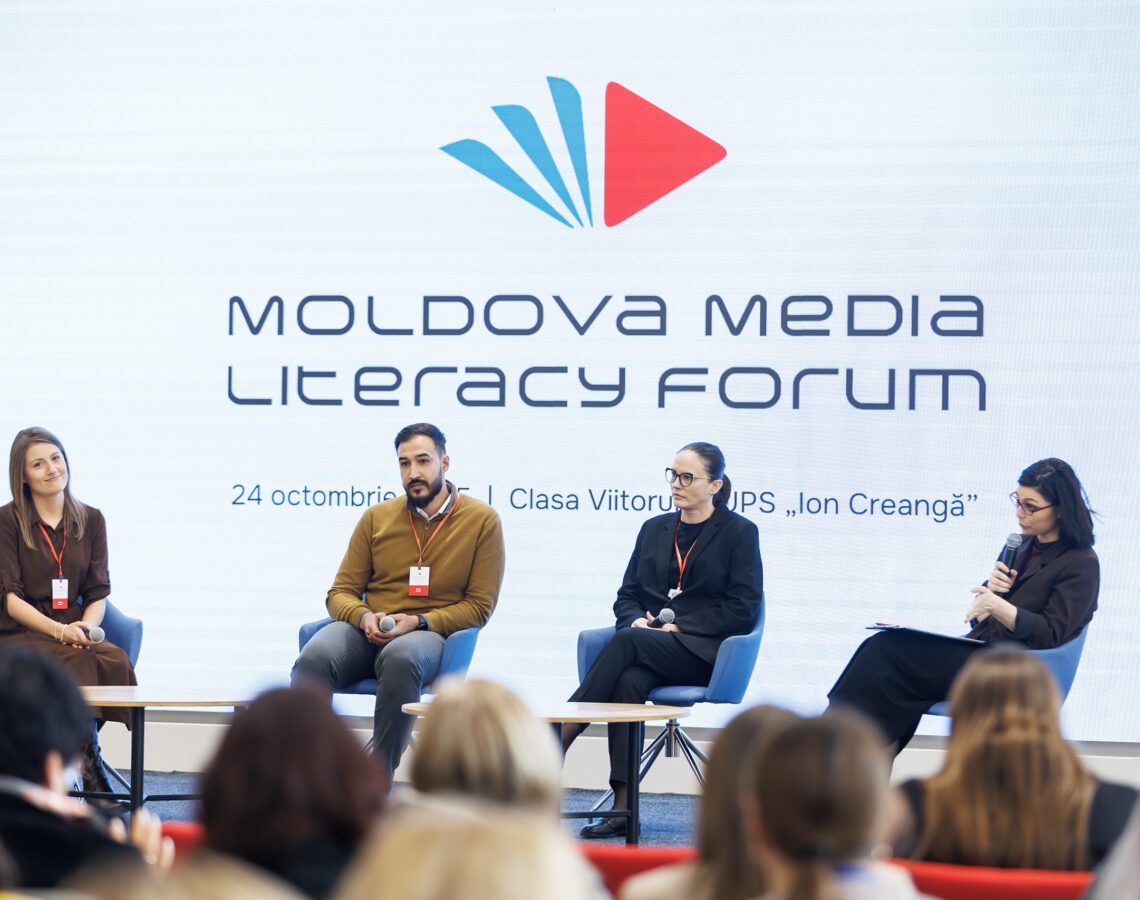
During a session held at the third edition of the Media Education Forum, organized on October 24, the relationship between media education and fact-checking was discussed.
The moderator of the event, journalist Ana Sîrbu, noted that fact-checking is no longer the exclusive responsibility of journalists and newsrooms, but is “a civic responsibility and that of other consumers of media content – schools, cultural centers, perhaps even city halls, medical centers, etc., where everyone must analyze the facts.”
The editor-in-chief of the Mediacritica.md portal, Victoria Dodon, highlighted the accelerated dynamics of the phenomenon of disinformation. “Things have changed a lot in this area, and there are many factors contributing to this rapid and continuous change. What was true a month or six months ago is no longer relevant. One of the factors that has contributed to major changes is the evolution of technology. Today, deepfakes and other content generated by artificial intelligence are increasingly realistic, and the expression ‘I saw it with my own eyes’ is no longer valid. Disinformation, fakes, all this content that exploits emotions circulates rapidly. Half an hour on a network like TikTok is enough to know that you have reached your audience. This architecture of social networks favors the spread of harmful content in a certain way, and it is increasingly difficult to combat and resist it. In addition, it seems to me that what we are seeing more and more often is a crisis of authority, because whereas previously we looked to institutions, dignitaries, or officials, now many public figures are themselves a source of misinformation. As a result, people no longer know what to believe,” she said.
Victoria Dodon recommended that the teachers participating in the Forum, together with their students, analyze more often the techniques of manipulation and the appeal to emotions such as fear, pity, or hatred, which can be exploited to induce certain states and reactions.
Investigative journalist Liuba Șevciuc, co-founder of the Cu Sens media project, proposed a concrete solution: “One way to combat misinformation and fake news is to produce as much authentic journalistic content as possible, so that we can inform people about what is really happening in this country. Similarly, we combat fakes by presenting evidence: we publish documents and other materials. Politicians, especially those in the pro-Russian camp, are champions of fakes,” said the journalist.
Teachers were also encouraged to analyze, together with their students, the statements of local elected officials and events in their communities, such as district council meetings, which are often available in video format. Participants were urged to examine the promises made by public officials to assess whether they reflect the truth or contain elements of manipulation.
Matei Vrabie, program manager at Funky Citizens, Romania, shared his experience in fact-checking, emphasizing the importance of adapting messages for young people. “We often have to adjust our message so that children can understand it, not just adults. We convey very simple messages tailored to each community. We talk about current misinformation situations for the community we are visiting,” said the Romanian expert.
At the end of the session, Victoria Dodon recommended that primary school students be taught to ask the right questions so that they can develop critical thinking skills on their own. “Let’s move away from the paradigm of ‘you have to do as I say, you have to think as I say, because I am the knowledgeable adult’. We continue to criticize the person and not the idea. That is why it is important to teach children to challenge ideas and engage in healthy debate,” she said.
Matei Vrabie, in turn, emphasized the importance of promoting positive news. “Currently, almost no one writes about the beautiful things that happen in the country or in other countries. We must learn to reinterpret the word or misinformation in question so that we can think differently and break the information bubbles,” the expert said.
Finally, Liuba Șevciuc stated that she does not recommend a specific tool for verifying fake news, as it changes very quickly, but she advocates the development of critical thinking. She reiterated the importance of verifying information from at least two independent sources.
The third Media Education Forum brought together around 100 participants: teachers, librarians, local and foreign experts, authorities, representatives of partner organizations, etc. The event, organized by the IJC every two years, facilitates the exchange of opinions and ideas, providing an opportunity to analyze trends and perspectives in the field.
The third edition of the Media Education Forum was organized by the Independent Journalism Center as part of the projects “Media Literacy Advancement and Support to Moldovan Media,” supported by Sweden and implemented by Internews, “Advancing Information and Media Literacy – Phase II,” implemented by International Media Support (IMS) with financial support from the Danish government, and “Strengthening Media Education Skills in the Republic of Moldova: Piloting an Integrated Approach in Formal Education,” implemented in partnership with Deutsche Welle Akademie and with the support of the German Federal Ministry for Economic Cooperation and Development (BMZ).
![]()



